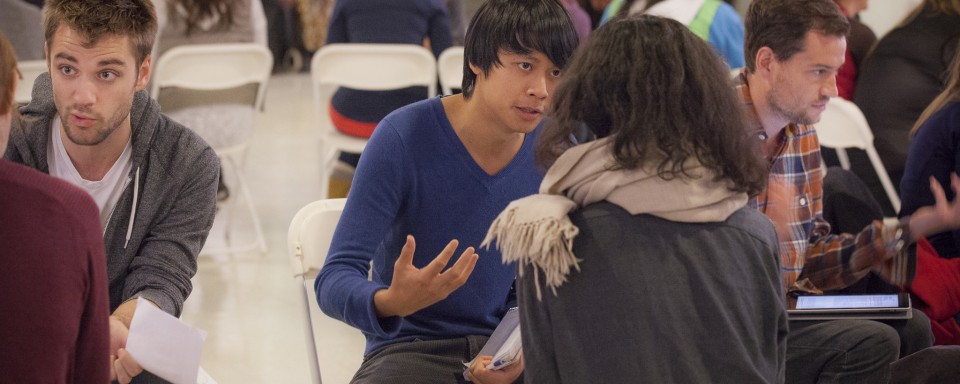by Ari Isensee
Students of the Working Class Public History class reflected on their experiences of representing oral histories of Pointe-Saint-Charles which are part of the archive at the Centre for Oral History and Digital Storytelling.
The life stories assignment, including the ‘speed dating’ exercise, was an interesting experience. Learning the life story of a middle-aged woman (Donna Leduc), who was (and presumably still is) a lifelong resident of Point St. Charles, provided a very interesting, in-depth perspective on life in the neighborhood since the 1960s, and the changes that have occurred. Given that her family was Anglophone, and originally from Newfoundland, Donna likely had a very different experience than a lifelong Francophone resident of the Point. I’m glad I didn’t have to pretend to be a condo developer, or someone else directly involved in the gentrification process, because I would have had a much harder time identifying with their points of view.
During the ‘speed dating’ exercise, I found myself picking out specific details of Donna’s history, largely based on what the person across from me had said. To me, this points to a crucially important thing to consider when conducting oral history interviews, in that it is very possible to shape the way an interviewee tells a story and the details that they give. So, even if a person tells their story, they may select or omit certain details based on the questions asked. I have been asking myself whether it is okay to pretend to be another person with only a superficial understanding of their life and experiences. How can I presume to represent them accurately at all? During the exercise, I also found myself repulsed by characters that spoke of gentrification in a positive light. It is very difficult to leave behind personal experiences and prejudices during such an exercise.
All in all, the empathy involved in acting out another person’s life story provides an interesting perspective on history and how social, political, and economic changes affect people on a personal level.
by Ari Isensee
